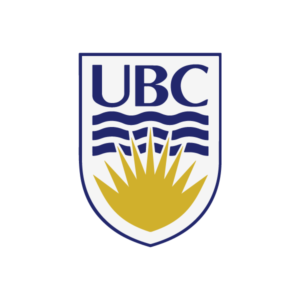The University of British Columbia (UBC) is a world-class university, a global centre for teaching, learning and research, consistently ranked among the top 20 public universities in the world and recently recognized as North America’s most international university. The University has two campuses (Vancouver and Kelowna), 11 Faculties and 14 Schools and Colleges with more than 65,000 students from Canada and the world (17,000 international students from 160+ countries) supported by 15,000 faculty and staff.
Academic: GPA of 3 or above on their studies to date
English Language:
– IELTS: 6.0 (no band score less than 6.0)
– TOEFL iBT: 90
– Duolingo English Test: 125
03 September 2024 – 20 December 2024
Applicants 2022
Applicants : 82 students
GPA : 3.07-3.98
TOEFL iBT Score : 94-101
IELTS Score : 6-8
Duolingo English Test Score : 90-150
Awardees 2022
Awardees : 10 students
GPA :3.46-3.90
TOEFL iBT Score : –
IELTS Score : 8
Duolingo English Test Score : 140-150
Applicants 2023
Applicants : 99 students
GPA : 3.02-3.96
TOEFL iBT Score : 90-99
IELTS Score : 5-8
Duolingo English Test Score : 65-155
Awardees 2023
Awardees : 10 students
GPA :3.59-3.96
TOEFL iBT Score : –
IELTS Score : 8
Duolingo English Test Score : 150-155
Available Courses
Introduction to the production, use, and attributes of renewable products and energy derived from biobased materials. Sustainability paradigms related to the bioeconomy; potential environmental and socio-political impacts associated with biobased technologies and transitions to sustainable economies.
Introduction to plant biology, with special emphasis on growth and development, highlighting the biological mechanisms of radiation energy capture, and water and nutrient acquisition in the production of plant biomass.
Seminars on current natural resources conservation and forest sciences topics.
Introduction to growth of trees and forests with emphasis on evolutionary, ecological and environmental aspects.
Introduction to forestry, wood products industry, processes, products, markets and global trade policy issues affecting the wood industry. Not available for credit to students in the B.S.F. degree.
Introduction to climate change through the lens of local landscapes and future scenarios, using visual media to communicate the underlying science and psychology, and engage communities in local climate change solutions.
Strategies for thinking critically and writing effectively about topics that engage practitioners in Forestry, particularly in Wood Products Processing. Planning, drafting and editing of professional-quality documents for specialists and other stakeholders. Developing oral presentation skills.
An introduction to policy and decision making for conserving biodiversity in an uncertain world using a combination of ecological data and decision science
Introductory genomics in the context of genetics and epigenetics; current and topical issues, including genetic determinism, environmental DNA, revival of extinct species, and applications of genomics to improve our life and environment including adaptation to climate change.
Principles and methods for planning urban and rural recreation and related tourism resources including analyzing recreation resources, applying policies and standards, developing park/recreation area management plans, and understanding benefits to human and community wellbeing and biodiversity.
Roles played by urban forestry and greenspace systems in a rapidly changing world; topics include urban ecology, urban forest conservation, urban forest management, climate change, society and human well-being, design and planning, urban/rural interface issues, and urban forest policy.
Basic relationships between urban residents’ mental and physical well-being and their urban forest environment.
Interdisciplinary approach to bioenergy. The technology of the systems involved, the social and environmental implications of biomass use for energy systems.

